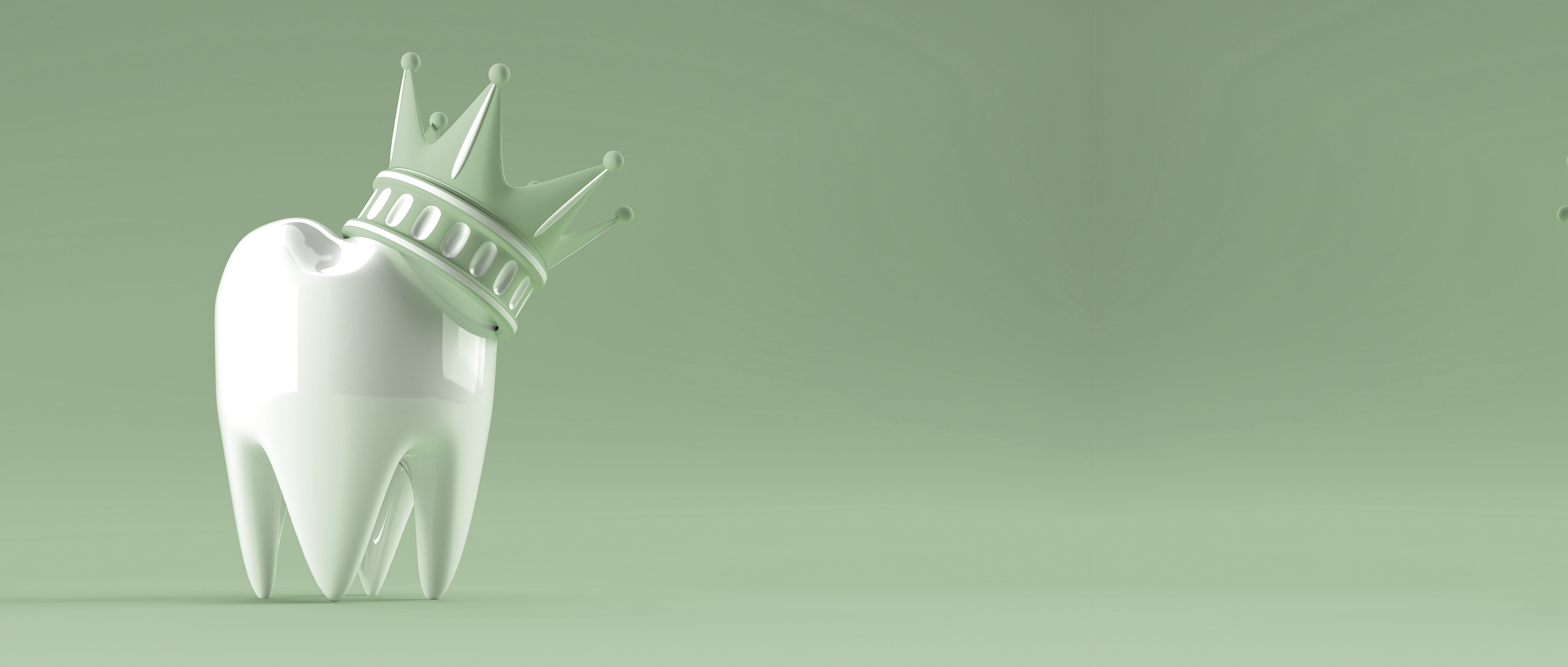Crowns provide a protective shield for teeth that are unable to endure regular biting force. Their bolstering effect aids in prolonging the lifespan of compromised teeth, thus decreasing your susceptibility to infection or tooth loss. Furthermore, we can position crowns over dental implants as a replacement for individual missing teeth.
Dental crowns may be necessary if you:
At Smile Place Dentistry, our experienced team will evaluate your dental condition and recommend the appropriate treatment, including dental crowns, to restore the health, function, and beauty of your smile. Contact us today to schedule a consultation and determine if dental crowns are necessary for your specific dental needs.
Our dentists at Smile Place Dental are experts in creating crowns that match the shape and colour of your tooth perfectly, so the result is as natural as it can be.
As well as enhancing your appearance, crowns restore the tooth’s strength, so it is effectively brand new in appearance and function.
Our dentists may recommend a crown to you to:
A bridge may be recommended if you’re missing one or more teeth. Gaps left by missing teeth can eventually cause the remaining teeth to rotate or tilt into the empty spaces, resulting in a bad bite. The imbalance caused by missing teeth can also lead to gum disease or other disorders.
Bridges are commonly used to replace one or more missing teeth. They span the space where the teeth are missing. Bridges are cemented to the natural teeth or implants surrounding the empty space.
Our dentists use implants to create support for a crown that acts as a brand new tooth. The advantage of implants is that they bond with your jaw, so they’re incredibly strong and ensure that you can eat and chew just as you would with your own natural teeth.
Implants stand alone, so none of your other teeth are compromised in any way, and they can be used to create just one tooth, or all of them.
Implants can also be a solution for dentures that don’t fit properly.

Among the various dental treatments known for theirlongevity, dental crowns stand out for their endurance. This is due to the factthat dental crowns are crafted from exceptionally strong and superior-qualitymaterials.
Dental bridges also offer remarkable durability,comparable to that of dental crowns, and boast a high success rate. Beyondtheir longevity, both dental bridges and crowns are notably cost-effective.
Dental crowns effectively shield older, fragile,and weakened teeth by serving as a protective layer. Crowns and bridges notonly help prevent future tooth loss by securing the teeth together but alsofortify the jawbone through constant stimulation akin to that provided bynatural teeth. This continuous stimulation contributes to strengthening thejawbone.
Dental crowns can also be used to cover implantsand secure heavily damaged teeth in place. They aid in confining damages suchas limiting cracks to a small area and preventing them from reaching the nerve.Dental bridges and crowns also prevent the common issue of teeth shifting dueto missing teeth, thereby maintaining stability and proper alignment.
Incomplete breakage of teeth often results insoreness and pain, with bleeding being a common symptom. This could be due tovarious factors such as accidents, injuries, or simply a tooth falling out.
Dental crowns and bridges serve as effectivesolutions to alleviate this pain. They also help eliminate the sensitivitycaused by the loss of a tooth.
While we’ve answered a few frequently asked questions below, every smile is unique. If you’d like tailored advice or have something specific in mind, we invite you to book a complimentary consultation. We’ll take the time to understand your needs and guide you with care and expertise.
A dental crown is a custom-made cap that is placed over a damaged tooth to restore its shape, size, strength, and appearance. It encases the entire visible portion of the tooth above the gum line.
Dental crowns may be necessary in various situations, including extensive tooth decay, root canal-treated teeth, cracked or fractured teeth, large fillings, misshapen or discoloured teeth, and to support dental bridges or implant restorations.
With proper care and maintenance, dental crowns can last for many years. The lifespan of a crown depends on factors such as oral hygiene practices, diet, and overall dental health. Regular dental check-ups can help monitor the condition of the crown and ensure its longevity.
These treatments differ according to their purpose. A dental crown is used to restore a damaged tooth, a dental bridge is used to replace missing teeth by anchoring artificial teeth to adjacent healthy teeth, and a dental implant is used to replace a missing tooth root with a titanium post and crown. The choice of treatment depends on the specific dental condition and individual needs of the patient, which can be determined through a thorough evaluation by a dental professional.
Over time, dental crowns may require replacement due to normal wear and tear or changes in the underlying tooth structure. Your dentist can assess the condition of the crown and recommend a replacement if necessary.

Dr Atousa Moradi continues to stay committed and up to date within dentistry, to always provide excellent dental care and comfort to patients of all ages.

Dr Chitra Rao has over a decade of experience in dentistry and continues to excel her knowledge.